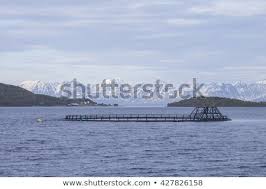Tromsø in shock fish farm ban

THE northern Norwegian city of Tromsø has called a halt to any further expansion of open fish farming activities inside its boundaries.
And in a further move which has angered the aquaculture industry, it has said that existing farming operations should not be expanded unless they are within closed, land based facilities.
The controversial decision was taken after little debate by the left wing dominated city council, which is made up of a mix of Labour, Socialist, Green and far left parties.
With a population of 75,000, Tromsø is Norway’s ninth largest city, covers an area of almost 1,000 square miles and lies above the Arctic Circle.
It is a popular tourist destination for viewing the northern lights. The city council has recently adopted a new coastal climate and environmental plan, which is behind the ban on further traditional net pen farming.
While new farming licences are issued by the national government in Oslo, local municipalities have the power to decide where fish farms should be sited.
According to the main city newspaper, iTromsø, the Labour leader, Jarle Heitmann, admitted that the move would raise more than a few eyebrows, but when it was proposed by the Green Party it was natural for his group to support it.
‘There are many different opinions about this, but it is in line with the (coastal climate) programme we adopted at the weekend,’ he said.
He also told the paper that the city council had to think about the environment and believed that the future of aquaculture in Norway was on land.
However, Marit Bærøe, Seafood Norway\’s northern aquaculture manager, has attacked the proposal, saying the city’s politicians were not fully aware of the consequences of their decision.
She told iTromsø that the council was trying to push the industry into new technologies that still had not been fully developed, adding that the move was designed to stop the industry from growing.
And senior Lerøy vice president Stig Nilsen, whose company has five active sites in Tromsø, told the journal Nordlys that it was a bad decision, arguing that the city council was exceeding its powers, along with damaging the local economy.
Nilsen also said that ‘fish farming is one of the most environmentally methods of food production in the world’.
But the Swedish Conservation Agency, which has a base in Tromsø, said: ‘We\’re excited. This is an important and courageous decision especially for the environment and our fjords.
‘It is also important for the aquaculture industry, giving it the incentive to develop in an environmentally friendly direction.’

